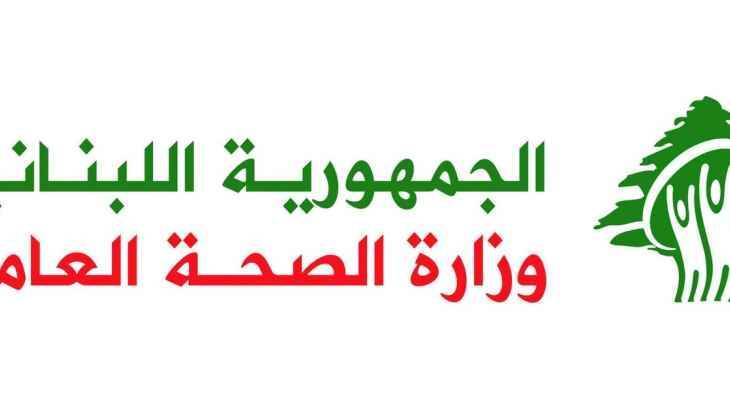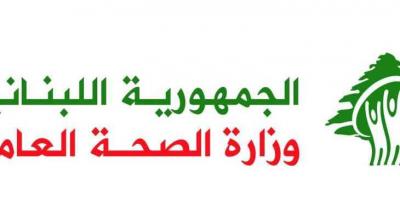The media office of the Minister of Public Health stated that it received, with great astonishment, the statement issued by the Beirut Doctors' Syndicate Council, which was released without any review by the ministry and contained a number of inaccuracies that we find important to clarify for public awareness, as follows:
- The recent rates approved in the general budget included significant increases in coverage by the Ministry of Health, which naturally included the rates for doctors that have largely approached the levels they were at before the financial crisis. In detail, the medical work fee (K) was 7,500 Lebanese pounds or 5 dollars before the crisis and has recently dropped to 45,000 Lebanese pounds or about half a dollar. However, now under the new rates, it has risen to 375,000 Lebanese pounds or around 4 dollars, which equals eighty percent of the rates that Lebanese doctors received prior to the crisis. Most other jobs in Lebanon have not even been able to approach this percentage relative to their pre-crisis levels. A pertinent question arises here: Did the ministry reduce the value of fees, or did it seek to restore lost balance and fairly and systematically rectify the situation for doctors? The ministry emphasizes that, contrary to what was stated in the aforementioned statement, it did not alter the value of the medical codes, which remain unchanged.
- The approval of the doctors' rates did not occur in isolation as mentioned in the referenced statement. On the contrary, these rates were agreed upon in lengthy meetings with the councils of the doctors' syndicates in Beirut and the North, during visits made by the Minister of Public Health to various regions to explain the new rates, where extensive meetings were held with medical committees from public and private hospitals. There was no objection raised as suggested by the "delayed" statement from the Beirut Syndicate Office.
- Concurrently with the approval of the rates, the Ministry of Public Health made diligent efforts with the Ministry of Finance and the Central Bank to pay doctors' fees within a three-month period, according to a new mechanism that was thoroughly studied and communicated to all concerned parties. The Ministry of Health and the Ministry of Finance are committed to implementing it, and its effects will become apparent soon.
- Some doctors may have concerns about two matters: a return to a previous situation where they delayed receiving their fees for extended periods, sometimes up to a year and a half, and the current situation allowing some of them to receive immediate financial differences in dollars from patients of the ministry. The statement clarified that while the Ministry of Public Health understands these concerns, it relies on the new payment mechanism to address them and confirms its seriousness in implementation, exerting all efforts to ensure timely payment of their fees. However, it will not accept any violations in this context or any exploitation of chaos and discrepancies to achieve unlawful gains, as it is fully convinced that the increases it approved are fair, preserving the doctor’s right to a decent living without adding additional burdens on the patient.
The Ministry of Public Health emphasizes that it aims through the new rates and all its ongoing programs to put an end to the chaos and randomness that have plagued the health sector in Lebanon since the outbreak of the financial crisis. Undoubtedly, the path is not easy, but it is determined to organize the sector in a way that achieves fairness without depriving any party of its rights, without any leniency or compromise. The ministry welcomes cooperation, leaving its doors open for any inquiries, clarifications, and exchanges of views that serve the interests of all, not one party at the expense of another, while reminding that the medical profession remains, first and foremost, a humanitarian profession. Its workers should not be deprived of a decent living, but it is clear that the laws of profit and trade do not apply to it.




